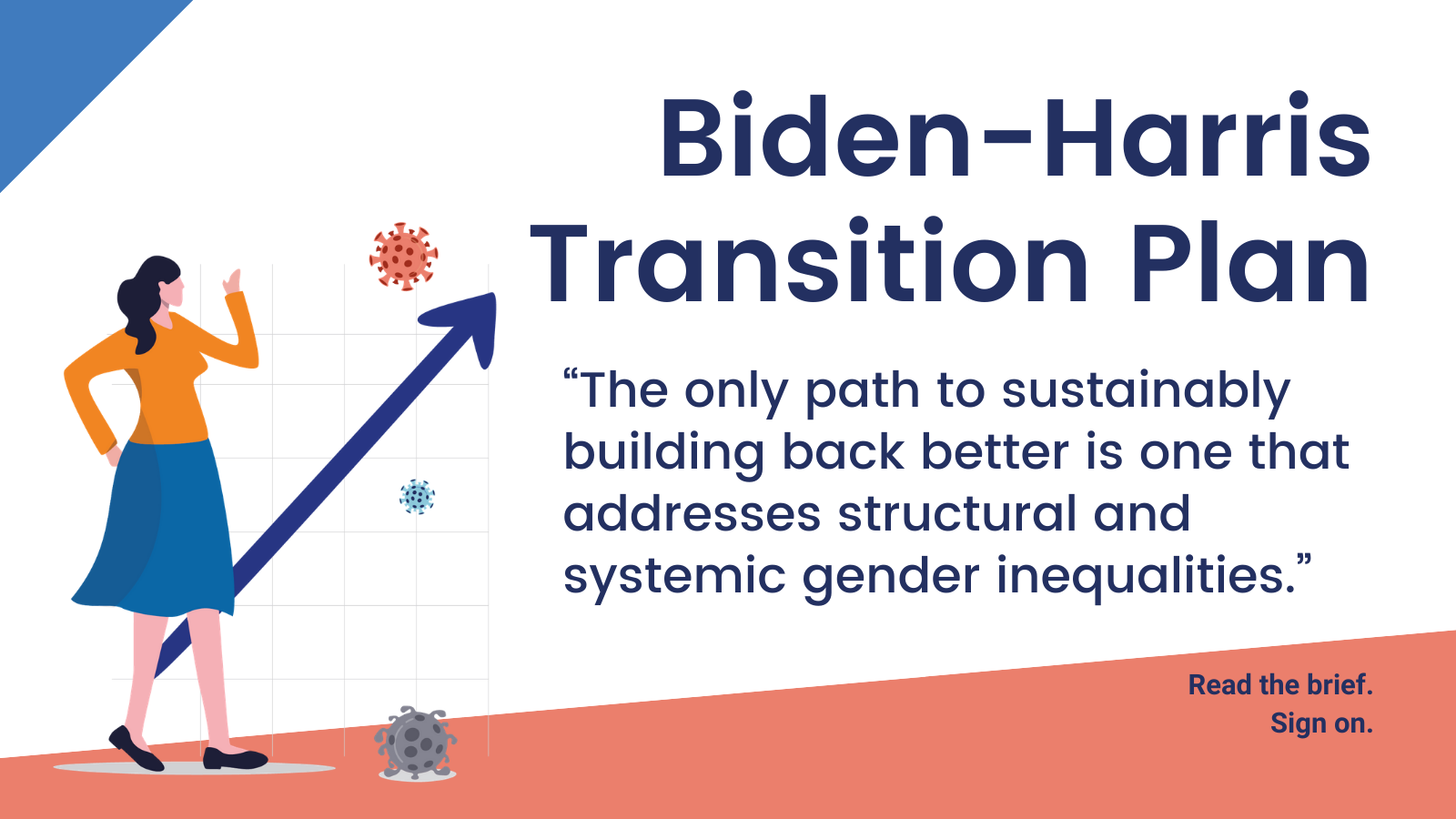Making the Biden-Harris Transition Plan for COVID-19 gender-responsive calls upon the Biden-Harris administration to ensure that its transition plan to “build back better” responds to the gendered effects of the pandemic and provides concrete recommendations on how it can be done.
Women, people of color, and other historically marginalized groups in America and around the world are differentially and disproportionately experiencing the COVID-19 pandemic’s destructive ripple effects throughout society. New data continues to confirm rising rates of sexual- and gender-based violence, massive job and earnings losses, increases in care work due to school closures, and heightened barriers to accessing critical health care services.
The social, economic, security, and health impacts of COVID-19 are different for women, men, and gender minorities. In particular, COVID-19 is having, and is going to continue to have, a negative impact on gender equality across multiple dimensions. In order to avoid a long-lasting detrimental impact on gender equality we need to use this opportunity to really build back better, to ensure the systems and structures in which we live and work are equitable for all. The Biden-Harris Transition Plan provides us an opportunity to do so.
Rosemary Morgan, Johns Hopkins Bloomberg School of Public Health
Using the four challenges which must be overcome to rebuild the nation set forth by Biden-Harris Jobs and Economic Recovery Plan for Working Families as an entry point, the brief provides concrete policy prescriptions for improved gender equity in COVID-19 recovery efforts in pursuit of reimagining and overhauling the status quo of structural gender inequality.
For example:
- To “mobilize American manufacturing and innovation to ensure that the future is made in America,” targeted support and minimum set-asides in public procurement spending towards businesses led by women and other underrepresented groups should be provided.
- To “mobilize American ingenuity to build a modern infrastructure and an equitable, clean energy future,” stimulus programs focused on ‘green jobs’ should proactively plan for gender equity and include formal programming for women.
- To “mobilize American talent and heart to build a 21st century caregiving and education workforce,” universally accessible, free, or highly subsidized childcare and long-term elder care should be prioritized and government assistance schemes should be expanded to include family and informal caregivers.
- To “mobilize across the board to advance racial equity in America,” all pandemic response and recovery measures should be based on rigorous intersectional research that sheds light on how policies work for people of different social identities and experiences of oppression, based on but not limited to race, Indigenous status, age, gender identity, gender expression, ability, socioeconomic status, sexual orientation, and immigration status.
Our country is in the throes of grappling with and redressing historical injustices that continue to perpetuate existing inequities, which are now both exacerbating and being exacerbated by the pandemic. By interrogating and confronting the root causes of inequality – such patriarchy, ableism, queerphobia, White Supremacy, colonialism, classicism, and racism – gender-responsive policy action provides not only targeted and effective immediate relief for people in need, but it also lays a new foundation for a just and inclusive long-term recovery.
Alexandra Solomon, member of the Gender and COVID-19 Working Group
The Biden-Harris administration’s actions to build back better at home and create a more gender-equal society in the U.S. will surely have global implications. The brief further advocates for this important new vision for America to demonstrate and materially contribute to international solidarity for gender-responsive development and global health assistance, as well as a coordinated pandemic preparedness and response.






